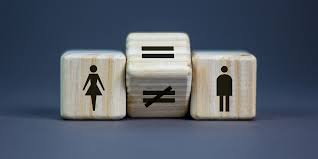Table of Contents
Gender Equality Essay – 1774 words
Imagine living in a world where your Gender determines your opportunities, your salary, your security and your voice. Unfortunately, this is the reality for millions of people around the world. Despite the progress that has been made in recent years, Gender inequality continues to plague our society. From the wage gap to Gender-based violence, the fight for Gender equality is far from over. In this essay, we look at the history, current status, importance and strategies for achieving Gender equality and why this issue is important to us all.
The History of Gender Inequality
Gender inequality has been a pervasive issue throughout history, with Women facing discrimination and hindered in all aspects of life. However, significant efforts have been made to fight for Gender equality and overcome these obstacles.
Discrimination against Women in the Past
Throughout history, women have been victims of discrimination and oppression in various forms. In many societies, women were considered inferior to men and were not given equal rights and opportunities. In ancient Greece and Rome, for example, women were not allowed to participate in politics or own property. In mediaeval Europe, women were excluded from education and the professions.
During the Industrial Revolution in the 19th century, women were often employed in factories and mills for low-paid and dangerous work. They were also denied the right to vote in many countries, including the United States and the United Kingdom. Women who spoke out against these injustices were often ridiculed, ostracised or even punished.
The struggle for Women’s Rights
The struggle for women’s rights began in the late 19th century with the suffragette movement, which campaigned for women’s right to vote. The movement gained momentum in the early 20th century and in 1920 the 19th Amendment to the US Constitution was ratified, granting women the right to vote.
In the following decades, women continued to fight for equal rights in all areas of life. The civil rights movement of the 1960s inspired many women to work for Gender equality, and in the 1970s the feminist movement gained momentum. Women demanded access to education, the workplace and political power, as well as the right to control their own bodies and reproductive choices.
Achievements in the Struggle for Gender Equality
Despite the many challenges in the struggle for Gender equality, significant progress has been made over the years. From the suffrage movement to the #MeToo movement, women and their allies have worked tirelessly to achieve greater Gender equality and ensure that everyone has the same opportunities and rights.
The fight for Gender equality has brought significant achievements over the years. Some of the most important achievements are –
- The right to vote – women now have the right to vote in most countries around the world.
- Equality in the workplace – Women have made significant progress in the workplace and have more opportunities for education and employment than ever before.
- Political representation- Women have made progress in political representation and more women than ever hold elected office at all levels of government.
- Reproductive rights- Women have gained more control over their own bodies and reproductive choices, including the right to access contraception and abortion.
- Legal protection- Laws have been enacted to protect women from discrimination, harassment and violence.
Despite these achievements, Gender inequality persists in many aspects of life. Women still earn less than men for the same work, are underrepresented in leadership positions and are at higher risk of experiencing Gender-based violence. The fight for Gender equality continues and we all need to work hard to make real progress.
Current status of Gender equality
While many achievements have been made in the struggle for Gender equality, there is still a long way to go. Gender-based violence, unequal pay and limited access to education and health care remain major challenges for women and other marginalised Genders around the world.
Gender-Based Violence
Gender-based violence remains a pervasive problem in many parts of the world. According to the World Health Organisation (WHO), one in three women worldwide has experienced physical or sexual violence in her lifetime. This violence can take many forms, including domestic violence, sexual assault, female genital mutilation and forced marriage.
Unequal Pay
Despite some progress in recent years, pay inequality between men and women remains a major problem. On average, women earn less than men for the same work in almost every country in the world. This is often referred to as the Gender pay gap. According to the International Labour Organisation (ILO), the global Gender pay gap is about 16%, which means that women earn 84 cents for every dollar earned by men.
Access to Education and Health Care
Access to education and healthcare is crucial for Gender equality, yet many women still face significant barriers in these areas. Across the world, girls are less likely than boys to attend school and more likely to drop out early. This can limit their opportunities for employment and economic independence. Access to health care, especially sexual and reproductive health, is also more difficult for women.
In some countries, laws and policies restrict women’s access to these services. For example, in some places women need the permission of a male guardian to access medical care or to travel. In other cases, cultural attitudes and practises may prevent women from accessing medical care or education.
It is worth noting that the impact of the COVID -19 pandemic has exacerbated these problems, with women and girls experiencing higher levels of domestic violence, job loss and caring responsibilities. As we move towards Gender equality, it is important to address these challenges and ensure that women have equal access to education, health care and other essential resources.
The Importance of Gender Equality
Gender equality is not only a matter of basic human rights, but it also benefits individuals, society and the economy. When all people have equal opportunities and can fully participate in all aspects of life, we can create a more just and equitable world for all.
Benefits for Individuals
Gender equality is essential to ensure that all people, regardless of Gender, have the same opportunities and rights. When individuals have equal access to education, employment, health care and other resources, they are better able to fulfil their potential and lead fulfilling lives.
Studies have shown that when women are educated and empowered, they are more likely to delay marriage and childbirth, start smaller families and invest in their children’s education. This can lead to better health outcomes, higher levels of education and greater economic stability for both women and their families.
Benefits for Society
Gender equality is also critical to building a more just and equitable society. When women are empowered and have an equal voice in decision-making processes, they can contribute their perspectives and expertise on a range of issues, from climate change to public health.
In Rwanda,where women make up more than half of parliament, there have been significant improvements in areas such as health care, education and Gender equality. Women’s participation in politics has helped prioritise and address these issues at the national level.
Benefits for the Economy
Gender equality is not only a matter of fairness and justice, but it is also essential for promoting economic growth and development. When women are able to participate fully in the economy, they can contribute their skills, knowledge and labour to a range of industries.
For example, a study by McKinsey & Company found that promoting Gender equality in the workplace could increase $12 trillion to global GDP by 2025 . This is because when women are given equal employment and advancement opportunities, they can help drive innovation, increase productivity and boost profitability.
When women are financially independent, they are also better able to invest in their own education and that of their children, leading to better health and economic outcomes for families and communities.
Strategies to Achieve Gender Equality
Achieving Gender equality requires a multi-faceted approach that includes education and awareness raising, government action and women’s empowerment. By working together to achieve Gender equality, we can create a more just and equitable world for all.
Education and Awareness Raising
Education and awareness raising are crucial to promoting Gender equality. This includes educating both women and men on issues related to Gender equality, such as women’s rights, the harms of Gender-based violence and the importance of equal opportunities in education and the workplace.
In India, the Beti Bachao Beti Padhao (Save the Girl Child, Educate the Girl Child) campaign was launched to promote Gender equality and encourage families to educate their daughters. This campaign has contributed to more girls going to school and a decrease in child marriages and female infanticide.
Also Check – Essay on Gender Discrimination in India
Government Policies
Government policies are also critical to promoting Gender equality. These include policies that address issues such as unequal pay, Gender-based violence and access to health care and education. Governments can also introduce quotas or targets for women’s representation in politics and leadership positions.
In Norway, a law was passed in 2003 requiring that at least 40 per cent of the board members of public companies be women. This policy has helped to increase the representation of women in leadership positions and promote Gender equality in the workplace.
Empowering Women
Women’s empowerment is another important strategy for achieving Gender equality. This includes equipping women with the tools and resources they need to participate fully in all aspects of society, from education and the workplace to politics and decision-making.
Microfinance programmes that provide women with small loans and financial services have been shown to help them start a business, increase their income and improve their economic independence. In addition, mentorship programs and leadership training can help build women’s skills and confidence and prepare them for leadership roles.
In summary, Gender equality is not only a matter of basic human rights, but also benefits individuals, society and the economy. It is time for all of us to work together to create a more just and equal world.
The famous comedian Lily Tomlin once said, “I always wondered why somebody doesn’t do something about that. Then I realised I was somebody.” So let us all be that “someone” and do something about Gender equality. Because, as the saying goes, “Why should women have to choose between their careers and their families when men can have both by simply ignoring their families?” Let us strive for a world where everyone can have it all, regardless of Gender.
Achieving Gender equality requires a multi-faceted approach that includes education and awareness raising, government action and women’s empowerment. Working together to promote Gender equality, we can create a more just and equitable world for all.
Gender Equality Essay in 150 – 200 words
Gender inequality has always been a pervasive issue. Women are discriminated against and prevented from achieving equality in all areas of life. However, over the years, significant progress has been made in the struggle for gender equality and overcoming these obstacles. From the suffrage movement to the #MeToo movement, women and their allies have worked tirelessly to achieve greater gender equality and ensure that everyone has the same opportunities and rights.
Despite these achievements, there is still a long way to go. Gender-based violence, unequal pay and limited access to education and health care remain major challenges for women and other marginalised genders around the world. Achieving gender equality requires a multi-faceted approach that includes education and awareness raising, government action and women’s empowerment.
Gender equality is not only a matter of basic human rights, but it also benefits individuals, society and the economy. If all people have equal opportunities and can participate in all aspects of life, we can create a more just and equitable world for all. So it is time for all of us to work together to create a more just and equitable world.
Gender Equality Essay in 250 – 300 words
Gender inequality has been a pervasive issue throughout history. Women are discriminated against and prevented from achieving equality in all aspects of life. Over the years, women and their allies have fought tirelessly for greater gender equality, from the suffrage movement to the #MeToo movement.
While significant progress has been made, there is still much work to be done. Gender-based violence, unequal pay and limited access to education and healthcare remain major challenges for women and other marginalised genders around the world. According to UN Women, 1 in 3 women worldwide experience violence, while the gender pay gap remains at around 23%. In addition, access to education and healthcare for women and girls is often limited in many parts of the world.
Achieving gender equality requires a multi-faceted approach that includes education and awareness raising, government action and women’s empowerment. By educating ourselves and others about the importance of gender equality, we can raise awareness and work towards creating a more equitable world. Governments can play an important role in achieving equality by adopting policies that promote equal rights and opportunities for all. In addition, empowering women through education and access to resources can help overcome the systemic barriers that limit their potential and prevent them from achieving their goals.
Gender equality is not only a matter of basic human rights, but it also benefits individuals, society and the economy. If all people have equal opportunities and can participate in all aspects of life, we can create a more just and equitable world for all. So it is time for all of us to work together to create a world where gender equality is the norm, not the exception.



